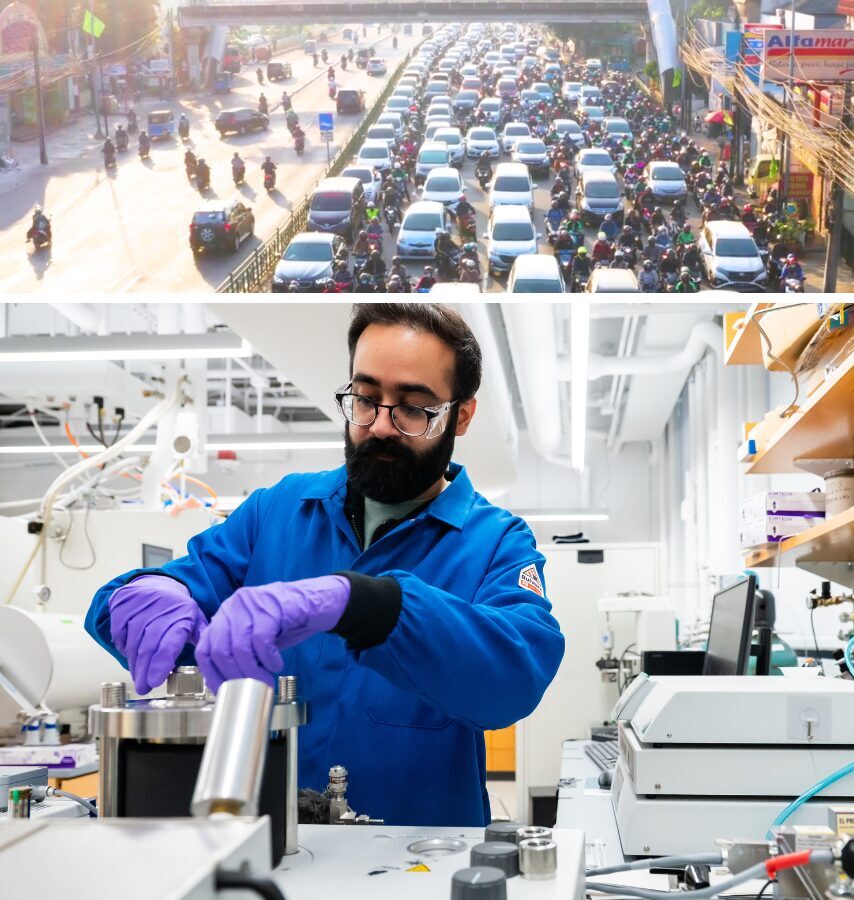The Effectiveness of China's Emission Controls on Air Quality, Deposition and Health Burdens
For the past decades, China has suffered long-term air pollution and associated health damages due to its high emissions of air pollutants, and great efforts have been conducted to improve air quality. To achieve its “carbon peak and carbon neutrality” target, moreover, ambitious measures on climate and pollution control will be further implemented in the future. In this talk, we comprehensively summarize our research outcomes on the effectiveness of China’s historical and future emission controls on air quality, deposition and health burdens. We combined best available emission inventory, air quality modeling and machine learning techniques, and develop an integrated research framework to evaluate the benefit of national air pollution control programs. We demonstrated the vital role of emission abatement on air quality improvement (e.g., reduced ozone concentrations), and captured the contributions of different emission sources to the changing air quality since 2010. We also found that the deposition in bulk deposition of major air pollutants lagged behind reductions in emissions. For the future analysis, we estimated that sustained clean energy use and emission controls would overcome the effect of climate change, leading to continuous improvement of air quality. Although emission abatement from end-of-pipe controls is of great benefit till 2030, clean energy policy will be more effective afterwards. Regarding associated health burdens, we find that the marginal national premature deaths, dominated by exposure of fine particulate matter (PM2.5), have decreased from 151,842 per 10% growth of emissions in 2013 to 111,271 in 2020, and will further to 54,293 in 2035 following the carbon peaking and carbon neutrality pathway. Our analysis support a location-precursor/sector-specific strategy of emission controls to improve China’s air quality and public health regulatory framework.
Speaker Bio: Dr. Yu Zhao is a Professor in the School of Environment at Nanjing University. His research interests include the quantification and evaluation of air pollutant emissions with multiple measures; analysis of regional and city air quality and its improvement strategy; and assessment of ecological and environmental health effects from energy and climate policies and air pollutant emission controls. He is a former postdoctoral fellow in the Harvard Paulson School of Engineering and Applied Sciences, and additionally held a research assistantship at the International Institute of Applied System and Analysis, Austria. He is the receipient of the Second-class Award of Jiangsu Provincial Science and Technology Prize and the National Outstanding Ph.D Dissertation Award.
Speaker Bio: Dr. Yu Zhao is a Professor in the School of Environment at Nanjing University. His research interests include the quantification and evaluation of air pollutant emissions with multiple measures; analysis of regional and city air quality and its improvement strategy; and assessment of ecological and environmental health effects from energy and climate policies and air pollutant emission controls. He is a former postdoctoral fellow in the Harvard Paulson School of Engineering and Applied Sciences, and additionally held a research assistantship at the International Institute of Applied System and Analysis, Austria. He is the receipient of the Second-class Award of Jiangsu Provincial Science and Technology Prize and the National Outstanding Ph.D Dissertation Award.

ADD YOUR EVENT TO THE SALATA CALENDAR
Are you hosting a Harvard-affiliated event that is related to climate change and/or sustainability? Please submit your event to the Salata Institute event calendar using this quick form! We look forward to sharing your event with the Harvard community.
Submit Your Event







